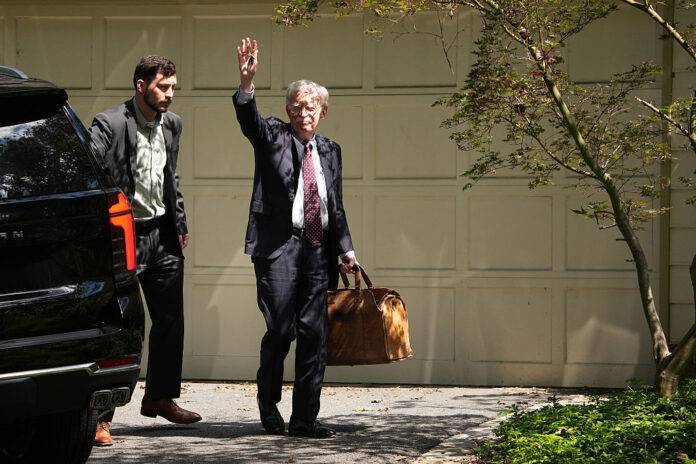A federal judge on Friday unsealed a heavily redacted affidavit used to justify the FBI’s August 22 search of former National Security Adviser John Bolton’s Maryland home, revealing that agents believed there was probable cause to suspect that classified and national defense information was being illegally retained.
Bolton, who served under President Donald Trump for 17 months before being fired in 2019, has not been charged with a crime, according to the Associated Press.
The FBI seized phones, computer equipment, and typed documents during the search, according to the affidavit.
While a coalition of news organizations petitioned for full disclosure of the records, citing a “tremendous public interest,” U.S. Magistrate Judge Timothy Sullivan ruled that significant redactions were warranted.
“The investigation involves matters of national security and highly classified materials to which the public has no right of access,” Sullivan said.
More than a dozen pages of the released affidavit are partially or fully blacked out, citing the ongoing and sensitive nature of the criminal probe.
The affidavit details concerns dating back to 2020, when National Security Council (NSC) officials warned that Bolton’s memoir, The Room Where it Happened, “appeared to contain significant amounts of classified information, some at top secret level.”
The affidavit also cites a statement from Ellen Knight, the NSC’s senior director for records, who wrote to Bolton’s attorney that when Bolton left his post:
“He stated that he did not have any notes or other records from his government service.”
Despite this assurance, investigators believe Bolton retained sensitive government materials, prompting the search.
The case echoes broader concerns about the handling of classified information by former officials, especially those who later publish books or give public commentary on national security issues. Bolton has been a vocal critic of Trump since leaving the administration and has frequently appeared in media and in print opposing Trump’s foreign policy.
The investigation remains ongoing, and federal authorities have not indicated when or if criminal charges might be filed.
IJRIJR


